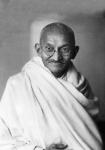To suggest that the young MP was speaking off the record and therefore one should not take seriously all that he said is little short of fatuous. Since he was speaking off the record, all the greater reason to believe he spoke his mind, he meant every word of his utterances.
He claimed he could have been, had he so chosen, the country's prime minister at the age of twenty-five. He suffered no embarrassment in making the statement. On the contrary, a trace of arrogance adorned his diction.
It did not matter to him that this great country was a democracy and a prime minister must enjoy the confidence of the one billion and odd people constituting the nation. It did not bother him either that, at the time he thought the prime ministerial slot was his for the taking, his credentials were zero, barring the fact that he belonged to a dynasty, correction, the dynasty.
And yet, it is pointless to be excessively harsh towards the young man. Howsoever obnoxious one judges its content, his statement bears the hallmark of truth. In the first few years following his father's assassination, had the youngster's mother expressed the wish, he would of course have been ordained as the leader of the Congress and therefore, automatically, the nation's prime minister.
There is also a great deal of substance in the near-hypothesis embedded in his Tehelka interview: it was only a matter of time, Mummy would see to the arrangements, one of these days in the not too distant future, he was going to take over as prime minister.
We do not blame a carnivorous animal for its predatory nature. The Nehru-Gandhis will be Nehru-Gandhis and will continue to take this nation for granted. The nub of the issue is the background of circumstances which inveigles the nation into being taken for granted by the dynasty.
Way back in the late Fifties, J B Kripalani used to take agonising pleasure while narrating an incident. He was addressing a village crowd somewhere in eastern Uttar Pradesh. Indira Gandhi had very recently been installed as Congress president and had just made a statement on a matter of considerable national importance that was full of hauteur and presumptuousness.
Kripalani complained to the crowd: 'What does she take herself to be? Is she the princess of the country?' The moment he spoke the words, thundering response from all sections of the crowd: 'Of course, she is our princess.' Kripalani beat a hasty retreat.
True, that mindset is no longer a ubiquitous phenomenon. The halo of the Congress is much dimmed. In last year's Lok Sabha election, the party failed to secure beyond 23 per cent of the total votes cast. Although the Congress continues to have its presence in all parts of the country, it has ceased to be the indisputably number one party in most states.
In Uttar Pradesh, the country's most populous state, it is reduced, in electoral terms, to the fifth position. These facts notwithstanding, within the party, the Nehru-Gandhis still maintain their absolute dominance.
How this had come about is easily explained. Excluding the dynasty, the Congress is an uneasy, unstable coalition of a number of feuding groups and individuals prone to constant factional fights. To bring them together, it is crucially necessary to introduce an external force. The Nehru-Gandhis are filling that role.
Given the patent ordinariness, in terms of talent, of its present generation, the dynasty is incapable of exuding a charisma. A charisma has nonetheless been sought to be thrust upon it by Congressmen to ensure the party's survival, and, hopefully, its electoral success. The supposedly magical charm of the Nehru-Gandhis is now a non-starter practically everywhere in the country, with the possible exception of the two districts of Amethi and Rae Bareli in Uttar Pradesh. Even so, the survival of the Congress depends on the continuance of the dynasty and the attribution of charisma to it.
No running away from the fact, the Nehru-Gandhis are the be-all and end-all of the Congress. They preside over the party and its destiny. Since the party is the major constituent of the United Progressive Alliance, the dynasty has come to preside over the alliance too. More for the sake of politeness than anything else, the rest of the alliance has gone along with this arrangement.
The alliance must, for dear life, be preserved, otherwise, the argument is mounted, the fundamentalists might return to power. To preserve the alliance, it is considered necessary to humour the Congress and put up with the lurid idolatory that party has been habituated to indulge in: the head of the dynasty as the head of the UPA.
It is an absurd set-up, it is still the hard reality. As long as the equation or non-equation of the existing political arrangements in the country persists, the UPA will have to stay together so as to foil its bête noire, the religious bigots. The rest of the UPA, it follows, will have to take the Congress as it is and accept its leader as the leader of the alliance.
The Congress will remain a conclave of devout practising theists, and the dynasty will keep furnishing its gods and goddesses on a regular basis. The young MP speaking to Tehelka thus knew what he was talking about; even though he did not say so openly he has every right to conclude that the present incumbent in the office of prime minister can be removed at a moment's notice, and mother will duly arrange to transfer the occupancy to him, the MP from Amethi.
The young MP may be brash, he may be cheeky, but nobody can say he is wide off the mark or is being non-objective.
Those who think a ruling dynasty in the 21st century in the world's largest democracy is a scandalous anomaly may attract sympathy from diverse sources. That, however, will not change the face of reality. What could change it is the arrival of a situation in which the other partners of the UPA have the guts to argue as follows: while, given the relative voting strength of the constituents of the alliance they were perfectly willing to offer the prime ministerial slot to the Congress, they would still enter a caveat; just as they were against religious fundamentalism, they were equally against medieval feudalism; the Congress must henceforth therefore pick a prime minister from elsewhere than from within the dynasty.
There should per se be nothing unreasonable in putting forward a demand of this nature. According to reports, the Congress and its other poll partners in Bihar have coaxed Laloo Prasad Yadav to accept the proposition that, should they emerge victorious in the forthcoming elections in the state, the chief minister of Bihar must be someone other than the railway minister's life consort.
Why does Sonia play second fiddle to Lalu?
If, at the level of a state, such a condition can be imposed, nothing ought to stand in the way of a similar contractual arrangement at the national level.
Perhaps, played into a difficult corner in this manner, Congressmen might put forward a plaintive plea: have a heart, were such a condition insisted upon and the dynasty made to withdraw from the scene, the Congress was bound to disintegrate, and what would then happen to the United Progressive Alliance?
We thereby arrive at the mother of questions: are we, who constitute the nation, the Congress's keepers for eternity?





